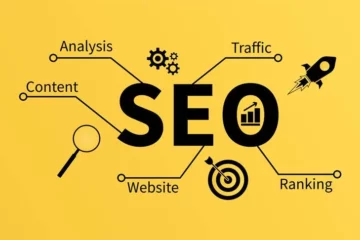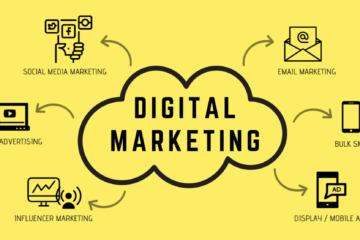Introduction:
In the rapidly evolving landscape of business development, organizations are increasingly turning to artificial intelligence (AI) to gain a competitive edge and drive innovation. AI, with its ability to analyze vast amounts of data, automate processes, and provide valuable insights, has become a game-changer for businesses seeking growth and efficiency. In this blog post, we’ll explore the transformative impact of AI on business development and how organizations can harness its potential to unlock new opportunities.
- Data-driven Decision Making:
AI’s prowess lies in its ability to analyze massive datasets at speeds impossible for humans. By leveraging machine learning algorithms, businesses can extract actionable insights from data, enabling informed and data-driven decision-making. Whether it’s customer behavior analysis, market trends, or competitor intelligence, AI empowers organizations to make strategic choices based on a comprehensive understanding of their business environment.
- Predictive Analytics for Market Trends:
Business development relies heavily on anticipating market trends and customer needs. AI excels in predictive analytics, using historical data to forecast future trends. By identifying patterns and correlations, AI systems can help businesses predict market shifts, customer preferences, and emerging opportunities, allowing for proactive strategies rather than reactive responses.
- Customer Relationship Management (CRM):
Maintaining strong customer relationships is at the core of successful business development. AI-powered CRM systems enable businesses to personalize interactions, anticipate customer needs, and streamline communication. Chatbots and virtual assistants, for example, can enhance customer engagement by providing instant responses to inquiries and automating routine tasks, freeing up human resources for more complex and strategic activities.
- Sales Forecasting and Lead Scoring:
AI algorithms can analyze historical sales data to predict future sales trends accurately. Additionally, AI-powered lead scoring helps prioritize leads based on their likelihood to convert, allowing sales teams to focus their efforts on high-potential opportunities. This not only improves conversion rates but also enhances the efficiency of sales processes.
- Process Automation:
AI-driven automation reduces manual workloads, minimizes errors, and increases efficiency. Routine and repetitive tasks, such as data entry, can be automated, freeing up valuable time for employees to focus on strategic business development initiatives. Automation also ensures consistency in processes, contributing to improved overall business operations.
- Personalized Marketing Campaigns:
AI enables businesses to create highly personalized marketing campaigns by analyzing individual customer preferences, behaviors, and purchase histories. This level of personalization not only enhances customer experience but also increases the effectiveness of marketing efforts, leading to higher conversion rates and customer loyalty.
- Supply Chain Optimization:
For businesses involved in product-based industries, optimizing the supply chain is crucial for efficiency and cost-effectiveness. AI can analyze supply chain data in real-time, predict demand fluctuations, and optimize inventory management. This ensures that businesses can meet customer demands promptly while minimizing excess inventory costs.
Conclusion:
As businesses navigate the complexities of today’s competitive environment, integrating AI into business development strategies has become a necessity rather than a luxury. The transformative power of AI lies in its ability to enhance decision-making, streamline processes, and unlock new opportunities for growth. Embracing AI technologies empowers organizations to stay ahead of the curve, drive innovation, and create a more agile and adaptive approach to business development in the ever-evolving landscape of the modern business world.



